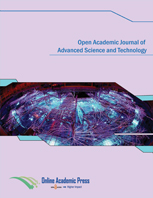Online vs. In-Person Learning: A Longitudinal Analysis of Academic Performance and Social Development
DOI:
https://doi.org/10.33094/oajast.v9i1.2354Keywords:
Chinese universities, Conceptual framework, Hybrid learning, In-person education, Online learning.Abstract
The quick transfer to virtual education at the time of the COVID-19 epidemic has stimulated general debate regarding the longstanding influence that it has on learner outcomes. This conceptual research explores the way the learning context—as opposed to in-person—affects academic performance and societal improvement amongst undergraduate students, as far as universities in China are concerned. For illustrative purposes, the study models data trends based on patterns reported in prior research, including learner surveys, faculty evaluations, and standardized test scores. The findings display that in-person teaching improves academic steadiness, peer communication, and interactive competence, but virtual education provides more ease and supports self-paced learning. Hybrid models are also assessed by the research, focusing on their prospects to include the advantages of both platforms. Results provide evidence-oriented perceptions to direct post-pandemic curriculum design and learning policy in the higher education zone in China. The findings presented are based on existing literature and illustrative examples rather than primary data collection, ensuring a conceptual focus on trends in learning outcomes.




